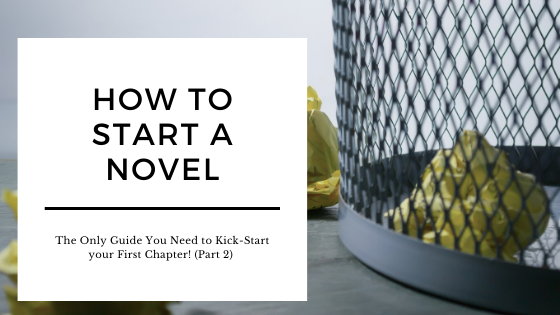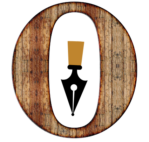Knowing how to start a story so that you captivate readers’ attention from the first few paragraphs is key to writing a publishable book.
There is a fine line between revealing intriguing information to hook your readers and giving away the story right from the first paragraph. Your first chapter should be all about creating that ‘hook’ and refraining from dumping a ton of information.

While there are many elements to writing a successful story, it’s the beginning that matters the most. It should be crisp. It should be sharp. It should be many things, but most importantly, it should compel your readers to turn to the next page.
6. How to Start a Story by Creating Immediacy
Ever came across a TV show you’ve never heard of but you catch like, one minute of it and suddenly you’re watching it like you’re an ardent fan, a long-time viewer? It’s the scene’s immediacy that grabs you.

It’s that big scoop of mystery that hooks you around the throat and compels you to sit down and watch.
While an action scene needs some context, immediacy/emergency doesn’t – in fact, one strength of such a beginning is that it demands the readers to wait for the context. It demands them to seek answers by being a curious observer.
Stephen King, on writing about the first chapter emphasized the importance of creating urgency (making a promise of intrigue with readers). He says –
“The first chapter must promise conflict central to the story. The first sentence should hook them into the story. It should shatter the glass and grip their senses. It must draw them in to keep reading.”
7. Start by Creating Disturbances
What does a child do when he needs his mother’s attention? He’d throw tantrums and whine until you hold them and reassure them, verbally or nonverbally, that you’re there.
But, I don’t want you to whine like a toddler. See how a kid creates disturbances to get what they want. If you too want to grip your readers into a scene, create disturbances in the first few paragraphs. In short, be that attention-seeking child (in a creative manner, of course).

James Scott Bell recommends these common disturbances that can be used to start your novel:
- A child is taken to the hospital.
- The lead gets a phone call in the middle of the night.
- A car breaks down in a deserted town.
- The lead gets a letter with some intriguing news.
- The lead wins the lottery.
- The boss calls the Lead into his office.
- The leads’ wife (or husband) has left, leaving a note
- The lead witnesses an accident or murder.
The disturbances you create in your first chapter should be a stone in your reader’s shoes that they cannot shake away. It may prick their soles but they cannot risk getting rid of it.
When you’re beginning the first chapter with disturbances, see whether the scenario is enticing. Is it something you’d want to be a part of? Does it sound as tempting as a gossip? Is it something you’d avoid speaking about in open?
8. Start in the middle of an event
I’m sure most of the books that you read follow the order of a beginning, a middle, and an end. If you want to throw your reader into a tense, intriguing, and exciting situation, start your first chapter in the middle of the event.
The scene doesn’t necessarily have to be of two characters hurling abuses or smashing bones. It could be as simple as getting a phone call from an unknown number or falling down the stairs.
9. Start with a natural starting point
The best thing about good novels is they seem to unfold naturally, starting from the very first sentence. However, when you sit to write your own, you know there are limitless choices, and yet your senses are paralysed to come up with an intriguing beginning.
That is to say, not every novel starts with a gripping opening line. It’s okay if you wish to choose a different approach. A simple approach. And it’s cool to write your way in. The truth is, you can write an amazing story starting from many different points/places.

For a natural beginning, you can think about real life, the significant episodes in a person’s life, and review the incidents that happened beforehand or as a result of it. Then think about your characters in a similar way and find those points where you can start.
But here’s a thing you need to remember if you are choosing a beginning like this:
“If you’re not introducing intrigue in your first few pages, you can at least make your characters relatable. Like I told you in Part 1, Your readers don’t have to love your protagonist. They don’t have to hate/despise her. They don’t need to know everything about her. But they must care about her.”
For example, you can even start the first chapter with the classic ‘Once Upon a Time’ as long as you get your readers to care about the protagonist, or at the very least, give them the gateway drug to the second chapter.
How to Start a Story (using brainstorming technique)
When I write the first chapter, I generally use the brainstorming technique to come up with an appropriate beginning. Here’s how you can start a story with a perfect first chapter
Step 1: Find a quiet place with zero possibility of distraction.
Step 2: Take a pen, paper, and a clock. Set the clock’s timer to 10 minutes.
Step 3: Jot down as many interesting scenes, events or incidents from your story. Be on a writing spree. You can’t stop. Keep writing. Write in clear handwriting. Write until the timer is up.
Step 4: Once you have penned down a bunch of sentences, go through each of them as a reader, see whether you’d want to read a story that starts from there. Pick the best one and get started!
Step 5: You can use the remaining sentences as the beginning point for the remaining chapters.
Do you have a unique idea on how to start a story? Or favourite tips for writing the beginning of a story? Let us know in the comments!


Pingback: How to Make Money on UpWork 2020 (100% Genuine): $1,183 in 3 Weeks | OakWords
Pingback: Conflict in a Story 101: What is Conflict in a Story, Types of Conflicts, and Conflict Examples